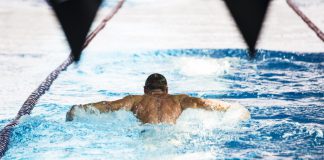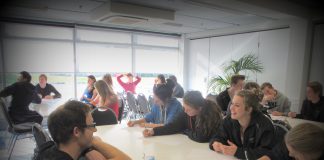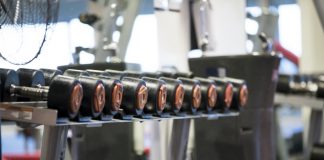If you are experiencing pain in your chest and any form of medical emergency can be ruled out, it might be musculoskeletal. Here are some common contributors to chest pain and how we would deal with them.
Referral from your back
This is probably one of the most common sources of pain in your chest that we will see in the clinic. The pain is felt in your chest but is being produced in your thoracic spine which is your upper back. It can be dull or sharp, stick to one location or move around. You might also get pain in your back but often the chest is the only location. Pain can be aggravated by deep breaths, twisting movements, leaning backwards or coughing / sneezing. Management includes treating the origin of the pain in your back with manual therapy, postural education and advice, and strengthening / stretching exercises.
Costochondritis
This is pain caused by irritation of the cartilage where the rib meets the breast bone. It is usually only sore over one or two levels and on one side but this isn’t always the case. It is very tender to touch over these sites. Sometimes one action of severe twisting or heavy lifting can bring it on but it can be from repetitive movement or increasing training. This condition is notoriously difficult to treat. Management usually includes oral anti-inflammatories, rest from aggravating activities and strengthening activities to help offload the painful site.
Rib fracture / bruise
These ones are usually a little easier to pick up because they tend to be subsequent to a pretty decent contact injury, such as a car accident, fall or rugby tackle. The point of pain is usually at the point of contact. It was once common to x-ray them but now they don’t because the management remains more or less the same. It is worth noting that the pain of a bone bruise here is often described as similar to a fracture. Deep breathing, coughing, sneezing all aggravate this pain. Unfortunately, not a lot can be done for them. Pain medication is encouraged as the pain can be very debilitating and people struggle to lie down to sleep. Pain relief also enables you to breathe deeper which is important for prevent secondary lung infections.
Muscle sprain / spasm
You have muscles that span between your ribs called your intercostals and they can be a source of injury and pain. We tend to see these injuries in people who participate in sports that require some explosive side bending and rotation like cricket bowlers, hockey players and gymnasts. I have also seen tenderness in these muscles in people who have been unwell and coughed a lot or braced a lot through their abdomen due to pain or respiratory issues. We manage these using manual therapy and massage into the muscles, stretching, and activity modification.
If you are experiencing pain in the chest and any red flags have been eliminated, then it may be musculoskeletal in origin. Any member of the team at Healthzone Physiotherapy can assess you and diagnose your condition. If there is any residual concern, we can refer you to you GP or hospital for further investigation.
Contact HealthZone Physiotherapy today on: (09) 477 2098





































